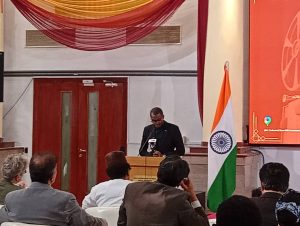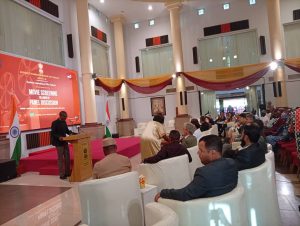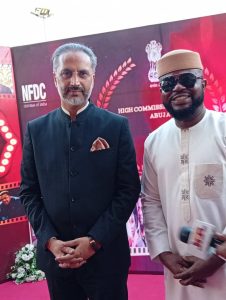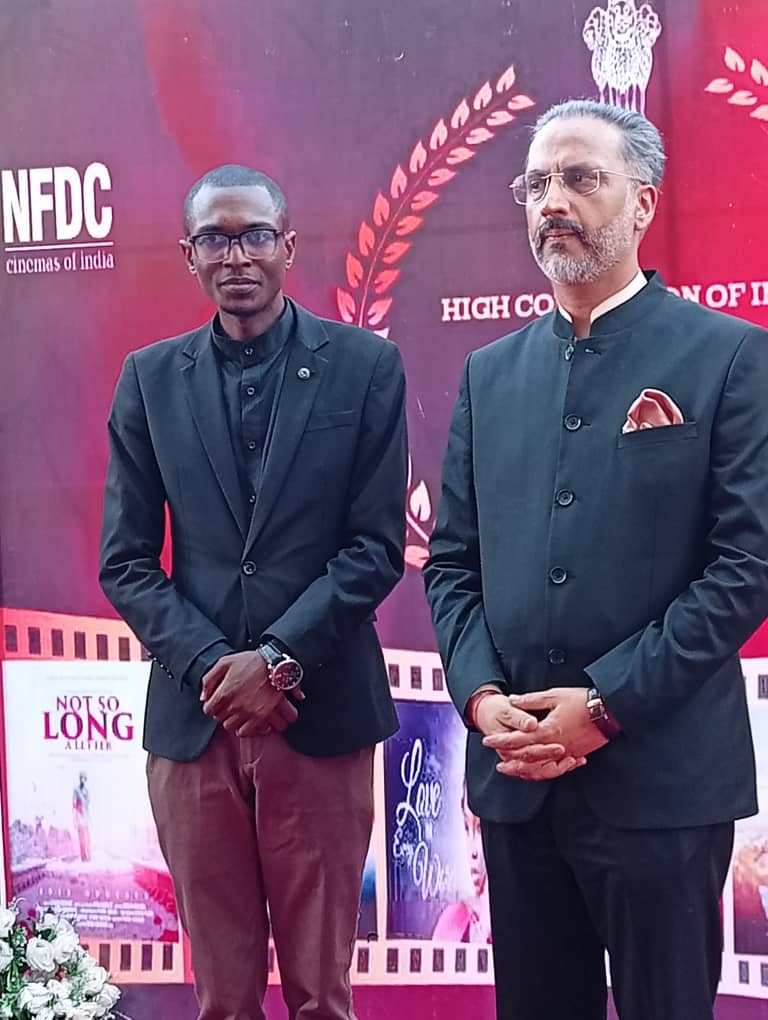•Stakeholders advocate greater government support for Nollywood at Kaduna Film Festival
Esther Oseyiomon
India and Nigeria are strengthening cultural and creative ties through increased collaboration between Bollywood and Nollywood. Speaking at the 2025 Kaduna International Film Festival (KADIFF), the Indian High Commissioner to Nigeria, His Excellency Abhishek Singh, emphasised the role of film as a bridge for cultural exchange, education, and mutual understanding between the two nations.
Ambassador Singh expressed delight in India’s continued partnership with KADIFF, now in its second year of collaboration. He noted that films not only entertain but also reflect societal values, making them an effective medium to showcase the rich diversity of both countries.
Highlighting the historical connection, Singh noted that Bollywood films have enjoyed widespread popularity in Nigeria for decades. At the same time, Nollywood has evolved into one of the world’s largest film industries since the mid-1980s. He encouraged more joint ventures to enable Nigerian films to reach Indian audiences and strengthen bilateral creative ties.
The High Commissioner announced a new initiative, “Bollywood and Yamarita,” which will showcase Indian films with English subtitles alongside Nigeria’s famous snack, Yamarita. The programme, he said, will be held across major Nigerian cities, including Abuja and Kaduna, to celebrate cultural diversity and promote collaboration between Indian and Nigerian filmmakers.
Singh referenced successful past collaborations such as Namaste Wahala and Postcard, highlighting how these projects blend both cultures and appeal to audiences across continents. He stressed that such partnerships open doors for talent exchange, innovation, and the growth of the creative industries in both countries.
Festival Ambassador, Mr Kashim Israel Audu, described this year’s KADIFF, themed “Cultural Nuances,” as a platform for celebrating creativity, tourism, and cross-cultural dialogue. He pointed to the co-produced film “Not So Long in Nature” as an example of how Nigeria–India collaborations can tell socially relevant stories while blending artistic traditions.
Audu announced that entries for the 9th Kaduna International Film Festival will run from November 11, 2025, to April 24, 2026, ahead of the main event scheduled for August 25 to 29, 2026. He said filmmakers from around the world are encouraged to participate, showcasing stories that highlight shared values, creativity, and cultural exchange.
He concluded by emphasising that continued collaboration between Bollywood and Nollywood not only strengthens bilateral relations but also contributes to global cinema. “Through partnerships like these, we can tell stories that inspire, educate, and connect people across continents.”
Photospeak




L-R: Ambassador Singh and Convener of Geopolitics Series, Senator Iroegbu
In the same vein, prominent figures in Nigeria’s creative industry, including Senator Shehu Sani and veteran actor Francis Duru, called for stronger government support and structured investment in the nation’s film sector.
Shehu Sani commended the organisers for sustaining the festival and promoting cultural collaboration between Nigeria and India through film and creative exchange. He stated that Nollywood has become a significant contributor to national development and global recognition.
“If the government can fund profit-making agencies, it should also invest in the film industry that generates jobs and revenue,” Sani said.
He noted that the industry has become an essential cultural and economic asset, helping to project Nigeria’s image positively across Africa and beyond.
In his remarks, Francis Duru said that while the festival’s theme, “Renaissance,” was appropriate, there was a need for what he called “recalibration”—a process of reviewing policies and strengthening the foundation of the film industry to foster inclusive growth.
“Before a renaissance, there must be recalibration,” Duru explained. “We need to identify where we are lagging and empower creatives at all levels.”
Duru added that the government must recognise the contributions of independent filmmakers who have continued to project Nigeria’s identity across the world. “We’re not begging the government,” he said.
“We’re already contributing to the economy and promoting Nigeria abroad; what we need is an enabling environment to thrive.”
Both speakers stressed that with deliberate policy direction, institutional reform, and increased investment, Nollywood can become one of the country’s strongest economic sectors while deepening Nigeria’s cultural ties with India.

